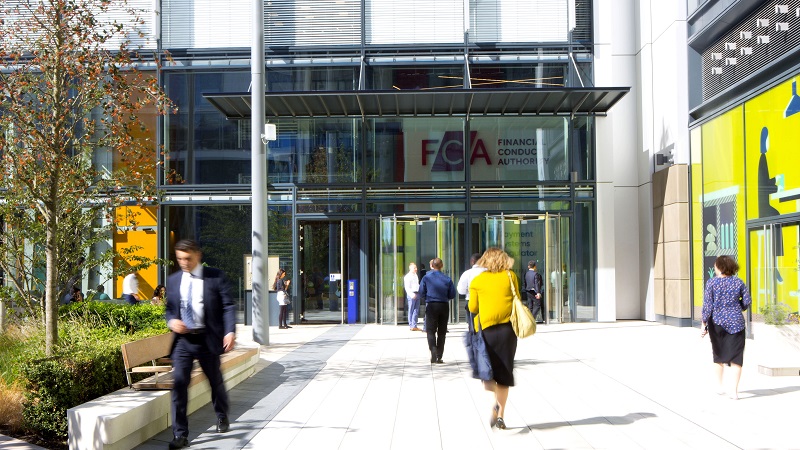The Financial Conduct Authority has pledged to keep markets open after its weekend announcement discouraging firms from reporting preliminary results amid the coronavirus sell-off sparked rumours the regulator was preparing to shutdown trading.
The FCA issued a note on Monday evening stating it was working with counterparts in the US, European Union and elsewhere to ensure markets would remain open and orderly “so they can continue to perform their essential role in supporting businesses, governments, jobs and the broader economy”.
It followed an update on Saturday evening in which the FCA told all businesses listed on the London Stock Exchange to hold off publishing preliminary figures, which come out weeks ahead of the audited full accounts. The regulator argued the prospect of publishing unaudited statements in advance would add “unnecessarily to the pressure on companies and the audit profession at this moment”. And it feared that by the time the full accounts were made public, investors would be operating with out-of-date information.
Market shutdown would have been the ‘single biggest policy risk’ to the financial world
AJ Bell investment director Russ Mould said the fact the information had prompted rumours of a full market shutdown was unhelpful, noting such a move would be the “single biggest policy risk to the financial world right now”. “You don’t give up on price discovery because you don’t like the price. You don’t remove liquidity and access to savings when people are seeing a shuddering halt in their cash flows.”
In an effort to quash such speculation, the FCA said UK markets had “continued to operate in an orderly fashion” despite significant market volatility.
The regulator also said it had no plans to follow in the footsteps of some European regulators with a ban on short selling, which it noted had decreased in recent days.
It said short selling was a critical underpinning of liquidity provision and that many investment and risk management strategies rely on the ability to take short positions. “The loss of these benefits would need to be carefully balanced before determining that any intervention to prevent short selling was appropriate,” the note said.
‘In the absence of information people will make things up’
But the FCA recommendation that companies postpone trading updates for a fortnight continues. Over 40 FTSE 250 businesses were due to report preliminary figures this week, according to the Financial Times.
Nucleus, which was supposed to publish preliminary results on 24 March, said it would be observing the FCA’s request and deferring the report.
Mould said delaying full year results will only make investors, who are already pricing in bad news and dividend cuts, panic more.
“The absence of commentary from management on their financial and contingency planning is far more likely to lead to a disorderly market than one where boards are doing their best to communicate in as realistic a fashion as is possible in the current circumstances,” Mould added.
Blanket ban is the fairest thing to do
The two-week moratorium on company results did not stop a raft of businesses from reporting on Monday, notes M&G Investments head of corporate finance and equities Rupert Krefting. But such measures would give companies that need it extra time to sort out their going concern statements for their audited final results.
For auditors to sign off on a company’s full year results they must be satisfied the company can survive the next 12 months, which Krefting notes has become more challenging given the violent market disruption over the past month.
“We don’t really want companies rushing out, saying that they’ve got problems with their going concern statement if they’ve got time to sort it out,” he said.
“And the problem is if companies start delaying their results, everyone suspects the worst, and so that tends to hit the share price. So, by giving a blanket ban, it’s just treating everyone fairly.”
Rush to put out information could trigger uncertainty
Others in the industry also hailed the regulator’s proposal as sensible during such extraordinary market conditions.
“In these unprecedented times, a rush to put out information in the market could trigger greater uncertainty,” said Aviva Investors global head of governance and stewardship Mirza Baig.
“As well as reporting on the financial performance of the past, results announcements are also an opportunity for companies to talk about current trading and future outlook,” said Federated Hermes European equities portfolio manager Chi Chan.
“Given the uncertainty over the spread of Covid-19 and ongoing refinements to the government’s plans for financial support for the economy, it would be unreasonable to expect many companies to provide that with any degree of confidence.”
Moratorium should last as long as situation is unclear
Alan Custis, head of UK equities at Lazard Asset Management, wants to go a step further than the FCA and thinks the moratorium “should go on as long as the situation remains as unclear as it currently is”.
“Investors need accurate and robust financial data on which to base their investment decisions,” Custis said.
“At the moment there is little in the way of consistency between the statements listed companies are making. Some refer to the future and withdraw guidance, whereas others comment up to the end of February and then make no reference to what is currently happening.
“While I believe UK companies should have the ability to issue qualitative statements explaining how they are coping with challenges and what banking arrangements they have in place, there is a danger that issuing unaudited financial statements, that some investors could take as audited, would be very misleading at this stage.”










